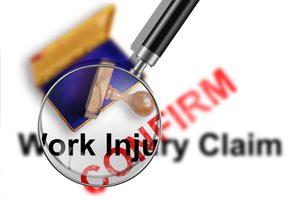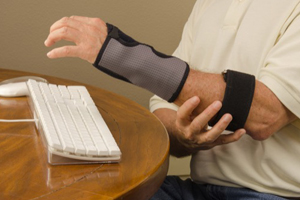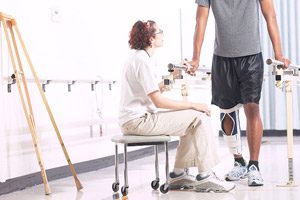Workers’ Compensation Benefits Are Available to Off the Books Employees
 For a variety of reasons, your employer may choose to pay you “off the books,” i.e., without running your wages through the company payroll. Your employer may want to avoid withholding taxes for you, or may want to avoid paying minimum wage. You may be only a part-time employee, so your employer considers your relationship similar to that of an independent contractor. But what happens if you are injured on the job? Are you without recourse to cover any disability or medical expenses that may arise?
For a variety of reasons, your employer may choose to pay you “off the books,” i.e., without running your wages through the company payroll. Your employer may want to avoid withholding taxes for you, or may want to avoid paying minimum wage. You may be only a part-time employee, so your employer considers your relationship similar to that of an independent contractor. But what happens if you are injured on the job? Are you without recourse to cover any disability or medical expenses that may arise?
In New Jersey, the test to qualify for workers’ compensation benefits is essentially two-fold: you must have been working at the time, and you must have been injured on the job. Accordingly, if you performed all the duties of an employee, but were simply not called one, you will still be able to seek workers’ compensation benefits from your employer.
If you were truly an independent contractor, however, you may be excluded from receiving workers’ compensation benefits. But don’t rely on your employer’s verbal statement that you were an independent contractor. In fact, even if you have a written agreement that calls you an independent contractor, the workers’ compensation judge will look at the actual relationship you had, as well as the nature of your work, to determine if you were really an employee.
Among the key questions that will be asked are:
- How much control did the employer exercise over your time and your assignments? The more the employer controlled both, the greater the likelihood of an employer-employee relationship
- Did you provide your own equipment and tools? If your employer provided those items, you were probably an employee.
- Was the work performed an integral part of the employer’s business? If so, you were probably an employee.
Contact Us
At Taylor & Boguski, we bring more than 70 years of combined legal experience to injured people throughout New Jersey. For a free initial consultation, contact our office online or call us at 856-200-8989.


 In New Jersey, after a job-related injury, you can apply for disability and medical benefits under the state’s
In New Jersey, after a job-related injury, you can apply for disability and medical benefits under the state’s  When you’ve suffered an injury on the job, you have a right to seek workers’ compensation benefits for any temporary or long term disability that keeps you from working or for any partial, but permanent, injury. Your employer and the workers’ compensation insurance company, though, have an incentive to minimize the amount paid to you, or to deny your claim altogether, as your claim cuts into their profits. So they’ll often use any means at their disposal to try to invalidate your claim, including hiring private investigators to secretly videotape you.
When you’ve suffered an injury on the job, you have a right to seek workers’ compensation benefits for any temporary or long term disability that keeps you from working or for any partial, but permanent, injury. Your employer and the workers’ compensation insurance company, though, have an incentive to minimize the amount paid to you, or to deny your claim altogether, as your claim cuts into their profits. So they’ll often use any means at their disposal to try to invalidate your claim, including hiring private investigators to secretly videotape you.  If you’ve been hurt at work and had to pursue
If you’ve been hurt at work and had to pursue  Securing
Securing  In New Jersey, when you’ve been
In New Jersey, when you’ve been  As we explained in an earlier blog, to qualify for
As we explained in an earlier blog, to qualify for  So you have been hurt on the job. In New Jersey, as in other states, you are entitled to seek workers’ compensation benefits for injuries sustained during the course of employment. The workers’ compensation laws were enacted to provide a benefit to both parties in the aftermath of a work-related injury. For the worker, there’s the opportunity to start receiving benefits within weeks of the injury, with benefits retroactive to the date of injury. You don’t have to incur the expense of a lawsuit and you won’t have to wait for compensation until the legal process is exhausted. As an employer, you don’t have to worry that a sympathetic jury will come back with a huge damage award. Payments are generally fixed under the workers’ compensation system.
So you have been hurt on the job. In New Jersey, as in other states, you are entitled to seek workers’ compensation benefits for injuries sustained during the course of employment. The workers’ compensation laws were enacted to provide a benefit to both parties in the aftermath of a work-related injury. For the worker, there’s the opportunity to start receiving benefits within weeks of the injury, with benefits retroactive to the date of injury. You don’t have to incur the expense of a lawsuit and you won’t have to wait for compensation until the legal process is exhausted. As an employer, you don’t have to worry that a sympathetic jury will come back with a huge damage award. Payments are generally fixed under the workers’ compensation system.
